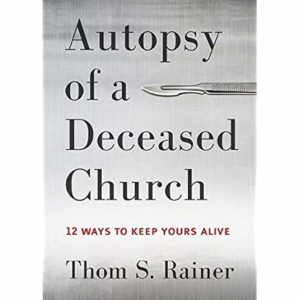 My friend Mary reminded me of that old song that includes the line that the bluest skies you’ll ever see are in Seattle. These October days show clearly why someone might have that thought. It is rare for Seattle to have such a string of beautiful, clear, vivid days like we have been having.
My friend Mary reminded me of that old song that includes the line that the bluest skies you’ll ever see are in Seattle. These October days show clearly why someone might have that thought. It is rare for Seattle to have such a string of beautiful, clear, vivid days like we have been having.
In such a stretch as this, it is easy to forget the unending days of rain, the relentless gray that once made Seattle the suicide capital of the nation, and the storms of winter that are escalating in recent years with more ice and snow than the locals (not to mention the thousands of new folks) know quite how to deal with, considering the seven hills on which Seattle was built.
It is easy to give thanks on days like this, when we feel blessed by the warm sun and the gorgeousness of the changing colors of autumn.
But the days will return when we simply have to know that the blue skies are up there somewhere, when we have to have faith that warm days will be with us again, when we will give thanks even though there appears to be less reason to do so. And the reason we will do that is because the Bible is clear: “… in every situation [no matter what the circumstances] be thankful and continually give thanks to God; for this is the will of God for you in Christ Jesus.” 1 Thessalonians 5:18 (AMP).




 Part of the joy of re-reading a book you loved in the past is getting to notice elements of writing craft that you cannot see the first time through.
Part of the joy of re-reading a book you loved in the past is getting to notice elements of writing craft that you cannot see the first time through. I’ve been thinking about the connection between praising and giving. There must be a strong, direct connection because congregations all over the nation, if not the planet, routinely close the “giving” portion of the worship service with the Doxology: “Praise God from Whom All Blessings Flow.”
I’ve been thinking about the connection between praising and giving. There must be a strong, direct connection because congregations all over the nation, if not the planet, routinely close the “giving” portion of the worship service with the Doxology: “Praise God from Whom All Blessings Flow.” Several months ago, a friend and I read and discussed Jacqueline Winspear’s
Several months ago, a friend and I read and discussed Jacqueline Winspear’s  We’re now a couple of weeks into Lent, which started with Ash Wednesday, February 14. Did you “give something up”? If you made that commitment, how is it going for you? Maybe you are fasting from a particular food or a certain behavior. Maybe you are keeping a commitment to focus on your spirituality every day. Or maybe you’re beginning to think of other ways you might honor this season.
We’re now a couple of weeks into Lent, which started with Ash Wednesday, February 14. Did you “give something up”? If you made that commitment, how is it going for you? Maybe you are fasting from a particular food or a certain behavior. Maybe you are keeping a commitment to focus on your spirituality every day. Or maybe you’re beginning to think of other ways you might honor this season. A friend recently lent me a fascinating and reader-friendly book entitled
A friend recently lent me a fascinating and reader-friendly book entitled  The Bible offers a lot of promises, but there may be none more extraordinary than the one in I John 5:14-15:
The Bible offers a lot of promises, but there may be none more extraordinary than the one in I John 5:14-15: Today is my spiritual direction session — a once-monthly meeting with my spiritual director. It is an opportunity to take an hour to reflect purposefully, with the aid of another, on my ongoing relationship with the Divine. We might talk about where I have seen God’s touch in my life or where there appears to be (or needs to be) guidance concerning an issue now or going forward. My spiritual director has known me for many years, so she is able to draw connections with past conversations and past events in my life. Because she is also a widow, she has valuable insights into the feelings and movements of the grief process.
Today is my spiritual direction session — a once-monthly meeting with my spiritual director. It is an opportunity to take an hour to reflect purposefully, with the aid of another, on my ongoing relationship with the Divine. We might talk about where I have seen God’s touch in my life or where there appears to be (or needs to be) guidance concerning an issue now or going forward. My spiritual director has known me for many years, so she is able to draw connections with past conversations and past events in my life. Because she is also a widow, she has valuable insights into the feelings and movements of the grief process. You’ve surely heard the Biblical instruction “give thanks in all circumstances for this is the will of God for you.” It is Verse 18 of I Thessalonians 5. You certainly heard it if you were in a Christian church on Thanksgiving Sunday. Most people who point to this verse emphasize that we are instructed to give thanks IN all things, not FOR all things, indicating a prevailing attitude of trust and gratitude that we should maintain no matter what is going on in our lives.
You’ve surely heard the Biblical instruction “give thanks in all circumstances for this is the will of God for you.” It is Verse 18 of I Thessalonians 5. You certainly heard it if you were in a Christian church on Thanksgiving Sunday. Most people who point to this verse emphasize that we are instructed to give thanks IN all things, not FOR all things, indicating a prevailing attitude of trust and gratitude that we should maintain no matter what is going on in our lives. It may be impossible to think of manna without thinking of the story in Exodus of God providing daily provision to the Israelites in the wilderness. Manna was that strange substance that fed them and all they had to do was pick it up off the ground. But each person had a daily portion, to be gathered on the day of its use. The only day of the week they could gather a double portion without the oversupply “going bad” was in preparation for the Sabbath.
It may be impossible to think of manna without thinking of the story in Exodus of God providing daily provision to the Israelites in the wilderness. Manna was that strange substance that fed them and all they had to do was pick it up off the ground. But each person had a daily portion, to be gathered on the day of its use. The only day of the week they could gather a double portion without the oversupply “going bad” was in preparation for the Sabbath.